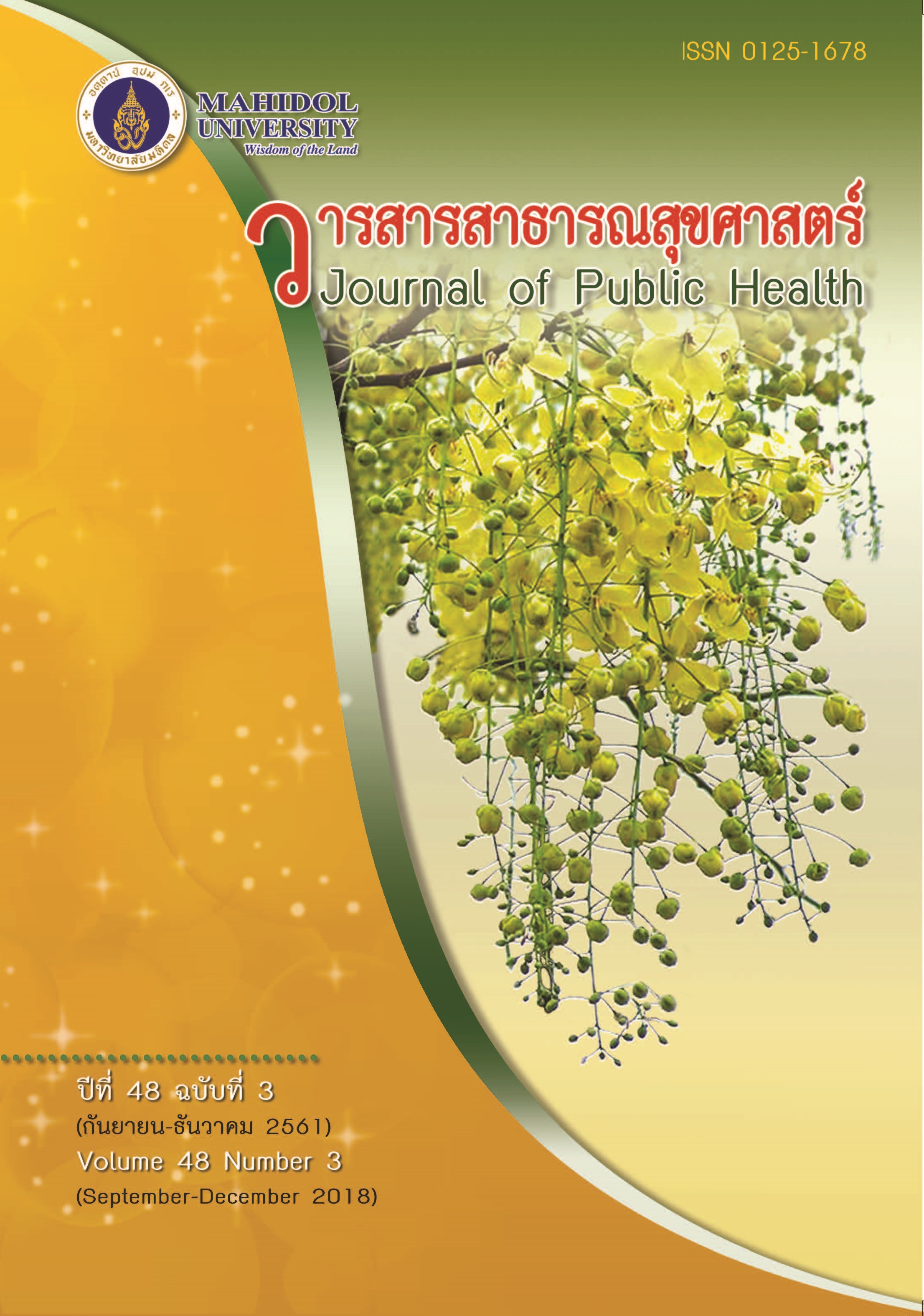Relationship between Dietary Pattern and Depression among a Working Age Population in Bangkok
Keywords:
depression, dietary pattern, working ageAbstract
The purpose of this study was to examine the association of depression with the dietary pattern in a working age population in Bangkok. This cross-sectional survey study was conducted among 446 participants (123 males and 323 females) aged 20 years and over. The score of depression was defined by the Center for Epidemiological Studied-Depression Scale (CES-D) and dietary pattern was defined by collecting data from a food frequency questionnaire. The relationship between depression and dietary pattern was analyzed using binary logistic regression. The results showed that the prevalence of depression was 29.4%. The analysis of the relationship between depression and dietary pattern showed that an intake of fruit for three days or less weekly was related to depression (Adjusted OR = 1.70, 95% CI = 1.09 – 2.66, p = 0.019). This study indicated that dietary pattern was a factor that influenced the symptoms of depression. A dietary pattern with a high intake of fruit was found to be inversely associated with depression.
Downloads
Published
Issue
Section
License
Creative Commons License CC-BY-ND


